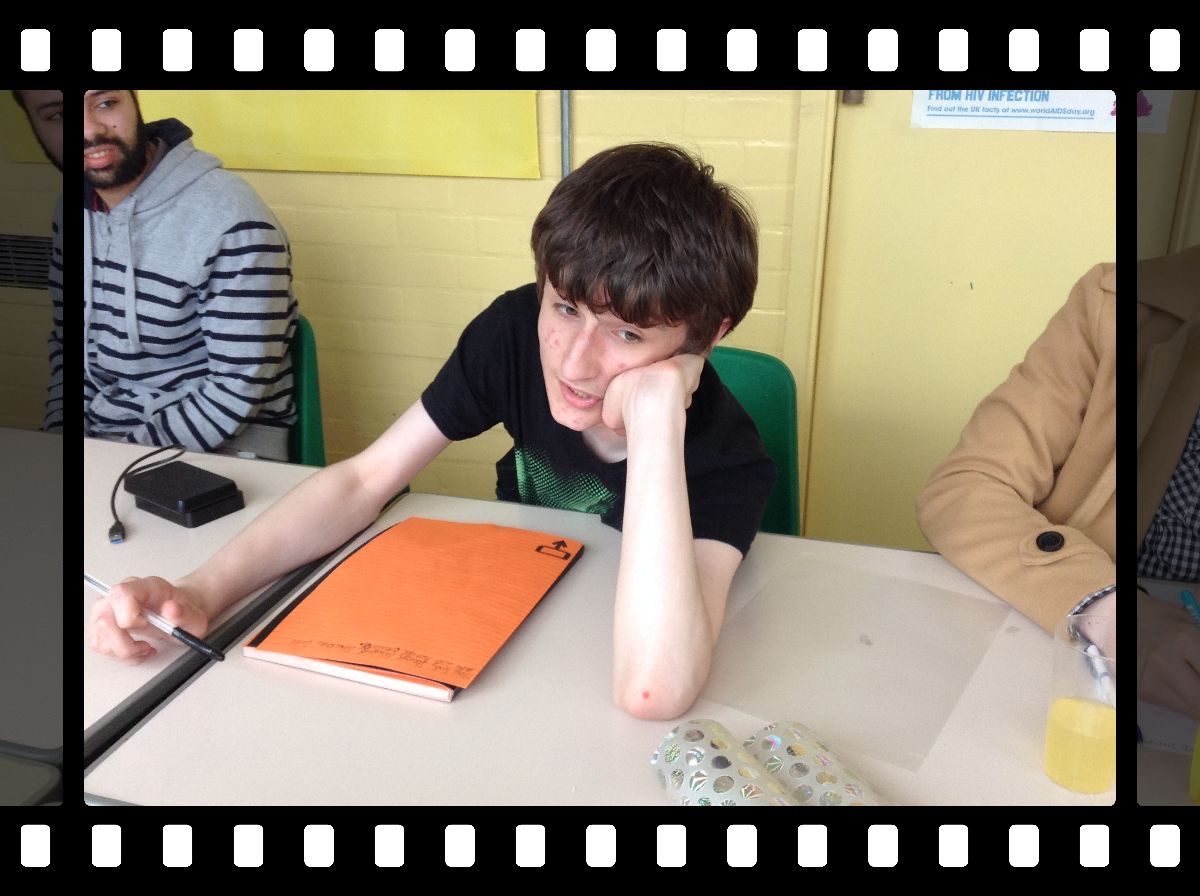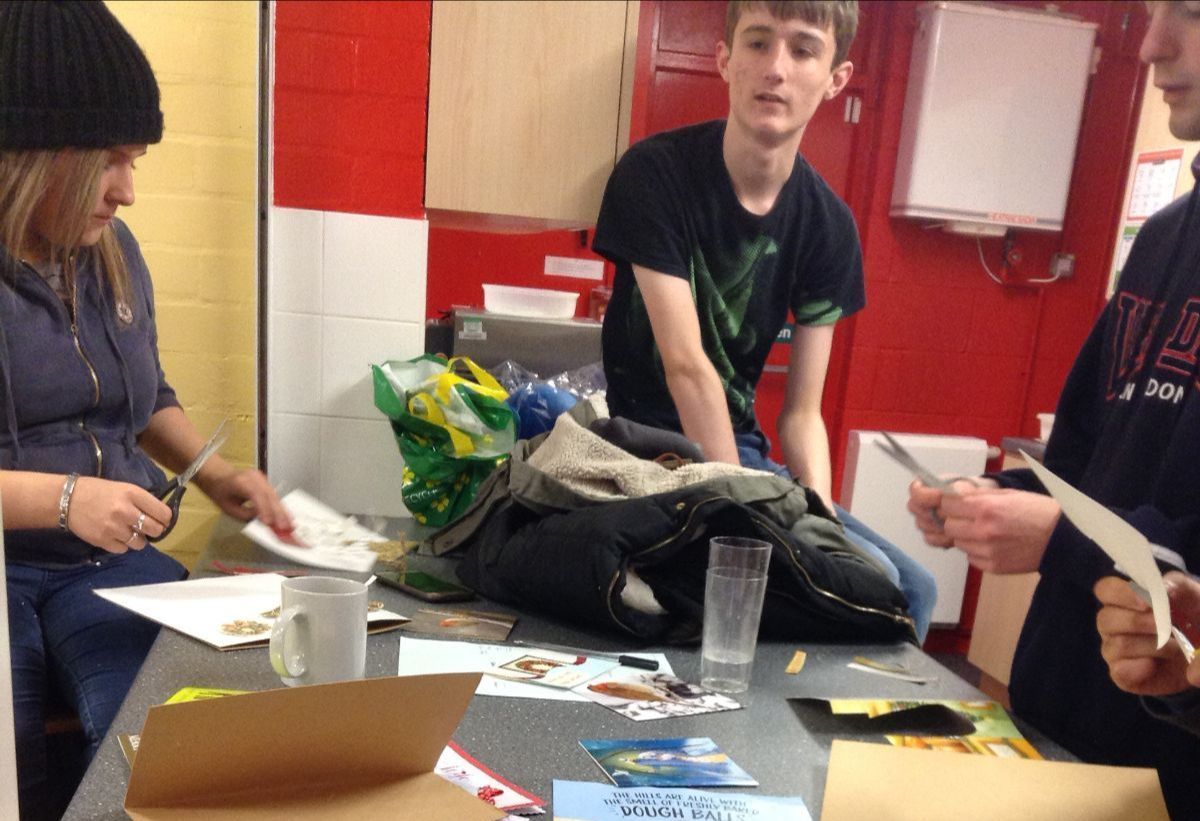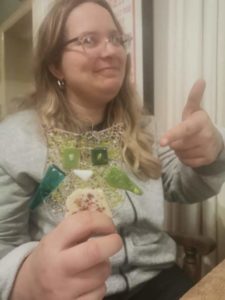 Our newsletters are currently featuring articles by each of our three Kickstart workers, who started working with HPCA in July, August and September. Kickstart is a government scheme set up by the Department for Work & Pensions (DWP) to create 6 month work placements for young people age 18-24 who were struggling to find work and get experience on their CV. We first heard about it back in the middle of 2020 when we got a mailshot from The Mighty Creatives (East Midlands Bridge Organisation for arts and education), asking for expressions of interest to take on a worker. We were instantly interested both in having extra capacity in the charity to help deliver our work, but also in doing what we can to help young people who are in a very difficult work climate, made worse by Covid.
Our newsletters are currently featuring articles by each of our three Kickstart workers, who started working with HPCA in July, August and September. Kickstart is a government scheme set up by the Department for Work & Pensions (DWP) to create 6 month work placements for young people age 18-24 who were struggling to find work and get experience on their CV. We first heard about it back in the middle of 2020 when we got a mailshot from The Mighty Creatives (East Midlands Bridge Organisation for arts and education), asking for expressions of interest to take on a worker. We were instantly interested both in having extra capacity in the charity to help deliver our work, but also in doing what we can to help young people who are in a very difficult work climate, made worse by Covid.
The Mighty Creatives launched as an umbrella organisation with the DWP and towards the end of 2020 they guided us through the process of writing job descriptions, and getting approval as an employer. Initially we designed a Trainee Project Manager job as someone who could shadow mine and Alison’s work. Then, thinking about young people with more practical creative skills we added a Trainee Workshop Leader job role.
I can write more about the recruitment process later – but for now I’ll fast forward to introducing you to the first two newsletter pieces. One from Luke Woohead, who joined the team at the end of July as Trainee Workshop Leader. He is actually a long-term member of our Film Cuts Club, so has chosen to write about what it’s like to participate over a long period. The second is from Elinor Coakley, our other Trainee Workshop Leader, who writes about her project which launched on 17th December. The final contribution for now will be in February, when you will hear from Georgia Tyler, our Trainee Project Manager.
Sophie
Luke
I first started at Film Cuts Club close to six years ago, most likely around the age of fourteen. At the time I was quite nervous around people I didn’t know and as a result, I had trouble socialising and making new friends….

…I think that’s one of the reasons why my mother brought me to the local youth centre, where film club were doing pilot sessions. At first I was quiet however I remember quickly acclimatising to the new environment, as I felt welcome and safe. I quickly became friends with another boy called Josh James, due to our shared interest in Doctor Who. I then met Andy as we were both in charge of editing other people’s films and we gradually became friends as a result. Then I met Matthew, Josh James’ younger brother and we both have a love for Warhammer 40K. From going to film club, I’ve been able to grow as a person and work on improving my self-confidence and overcoming my nervousness. The fact that I was in a group of likewise minded people who were welcoming and kind was a lot of help, and I always looked forward to the next film club session. This helped a lot with my mental health, as I was able to talk to other people about things we both shared interests in. Most of the time I used to stay at home and not interact much with other people, and now I feel far more confident going out and about and interacting with new people I meet. There are times when my nervousness affects me and can interfere with my everyday life. It can feel absolutely debilitating at times. Recently it’s been affecting me quite badly however I’m taking the steps to better myself, namely talking about it with people around me and seeking help. The best thing you can do is talk about how you feel with someone, even doing something like that will help you feel better.
On the technical side of things, film club increased my skills in writing, such as script writing. I also learnt how to use basic editing techniques, like cross-dissolves and key frame animation in Premier Pro (Other software is available…and likely cheaper…). These skills have helped me later in life as they came in handy at college, where I studied Creative Media and then Animation and Game design. Most of my time at film club was spent editing other people’s films. (I only ever made one film myself.) Editing and script writing was an invaluable experience, because it showed me that I couldn’t always just accept my own way as the only way. Instead it showed to me that other people’s opinions matter, occasionally more than my own. Examples: Scenes needing to be cut, ideas which were no good. This skill also improved over the course of film club, especially as I started to do more script writing and working with more people, helping them with their ideas.
Becoming a Kickstart worker for High Peak Community Arts, I have gained a different insight into everything that goes into planning a session of film club and other sessions, such as Project eARTh. I’m not going to lie; it can be stressful in the planning stage but it is worth it in the end. My time with high peak is split between Project eARTh, the office and Film Cuts Club. For the most part it’s been a lot of fun. (Occasionally my Asperger’s can become a problem.) Most of the times it’s when something unpleasant happens, which triggers my nervousness/Asperger’s and I can end up entering a ‘shut-down’ phase, where I withdraw into myself and have trouble coming out of that phase. Sophie and the other workers and volunteers at High Peak Community Arts have been extremely supportive, helping me out when I have a shut-down or episode. There is a benefit of this however, that is due to my experiences of mental health growing up, I’m more likely to notice it in others than some around me. At least on one occasion at the summer school, I had to help a young boy who appeared to be entering a shut-down like episode, similar to the ones I had. Other times I’ve called out to colleagues to warn them whether I think someone is in need of help. Overall I have enjoyed my time working with High Peak Community Arts however I don’t think it’s something that I would want to continue in future (I’ll still volunteer at film club and any summer schools)…

…Instead I think I want to go back to finding a job in retail, preferably somewhere involving books as that’s where my passion lies. I am glad I did Kickstart with High Peak Community Arts, as it helped me work out what job is right for me.
Elinor
Elinor started with us on the first day of the Tall Tales Summer School in August 2021, so she was really thrown in at the deep end. She proved to be a fantastic addition to the team with a unique view point on the way that culture is experienced by a new generation.
Here is what she has to say about job-hunting and next month she will write more about what her placement has been like.

My name is Elinor, I’m 24, and I have ASD. ASD means that I’m on the Autism Spectrum, which is a disability that affects my ability to socialise, organise myself and cope with the world around me. I have been working a job at High Peak Community Arts for 6 months, as part of the Kickstart Scheme.
My job is Trainee Workshop Leader, so I have been working on various projects outside the office, as well as planning sessions and writing up journals to document them.
Before I got my job, I already had a keen interest in disability rights, and community building. I completed a Politics degree with a 2:1, and did a lot of volunteering. My degree was something I was passionate about, it was my ‘special interest’, something that an autistic person becomes very interested in. For me, this was an example of a positive of being autistic. As part of my studies, I did presentations about Autism and women, as well as the effect of loneliness on mental health. This gave me a lot of knowledge informing my later work with High Peak Arts, and spurred me on by realising how much building community improves people’s lives, especially those with a disability like autism.
I also became involved with our university Debate Society, of which I was Equal Opportunities Officer, as I felt it was important for everyone to have their voice heard.This gave me great experience managing groups and conflict management. I realised group sessions need structure, flexibility, empathy and openness.
After university, I volunteered with various different charities. In Spring 2021, I helped out at Project eARTh, a project with High Peak Community Arts. I learnt a lot about different examples of workplaces in the volunteer and charity worked socially and structurally.
Although I enjoyed volunteering, I wanted a full-time job, but faced obstacles in my work search that I had to overcome. It felt like a momentous task to get a job in the midst of the pandemic, especially with a disability.
The biggest things I faced were anxiety, and the ‘unspoken rules’ while applying for jobs. Both were because I’m autistic; I sometimes struggle to understand expectations that are not directly put forward, and I worry that there are things I’m doing wrong on my applications without realising. This sometimes made it hard to stay motivated. In interviews, interviewers would often ask broad questions, and I would answer the best I could but not always know what they really wanted me to say.
Some chain businesses, like fast food restaurants, now require quizzes as part of the application process about what you would do in certain social situations, and how you would manage conflict. There is only ever one ‘correct’ answer to them, and if you fail this you can’t apply for the job. I found this incredibly draining, anxiety provoking, and discriminatory. I couldn’t apply for a lot of jobs because of application systems like this.
In order to overcome these difficulties, I signed up for Universal Credit and attended a lot of zoom and over-the phone workshops and one-to-one sessions for getting into work. They explained step-by step what to put in a job application. CAP Job club and Shane at Buxton Jobcentre were especially helpful, because they showed me exactly what to include and leave out.
When I finally got to the interview at High Peak Community Arts, whilst initially nervous, I really felt like I was somewhere that would understand the talent I had to offer, and they would judge me on my merits. I felt as though they took a holistic approach and that it was a safe place to grow and develop my career. I was so happy when I got the call that I had the job. I finally felt like I could live the life I wanted to, and plan my future.
